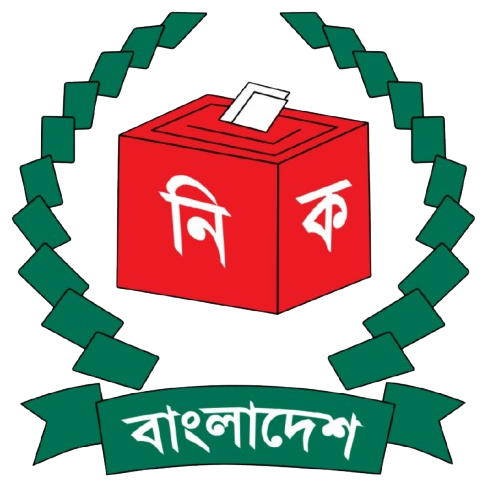NID Has Around 77,000 Pending Applications

NID Has Around 77,000 Pending Applications. The National Identity Card (NID) correction process has become a focal point of public attention, as the Election Commission (EC) recently disclosed that around 77,000 applications are still pending for resolution. This comes after a large-scale effort to address and settle over 900,000 NID correction requests.
Akhtar Ahmed, Senior Secretary of the Election Commission, provided insights into the ongoing efforts, shedding light on the scale and progress of the correction program.
In this article, we will explore the details of the ongoing NID correction initiative, the number of applications still pending, and the Election Commission’s efforts to ensure that all discrepancies are addressed promptly. Additionally, we will discuss the importance of accurate national identity cards in Bangladesh and how these efforts impact citizens.
NID Has Around 77,000 Pending Applications
According to Akhtar Ahmed, the Election Commission Senior Secretary, a significant number of 984,356 applications were submitted by citizens seeking corrections to their national identity cards. These applications ranged from minor updates such as name corrections to more complex issues such as discrepancies in birth dates, addresses, and other vital information.
From January to June, an intensive initiative known as the “Crash Program” was implemented to expedite the process of resolving these applications. During this period, an impressive 984,356 correction requests were successfully settled, leaving approximately 77,000 pending applications.
The Crash Program was specifically designed to address the backlog in NID corrections. The program aimed to streamline the process and ensure that citizens would not face unnecessary delays when correcting their national identity information. With nearly one million applications processed in just six months, the initiative reflects the Election Commission’s commitment to ensuring that national identity records are accurate and up to date.
Why Are NID Corrections Important?
The national identity card, also known as the NID, is one of the most crucial documents in Bangladesh. It serves as a proof of identity for citizens and is required for various essential activities, including voting, opening bank accounts, obtaining government services, and more. Any discrepancies in an individual’s NID can cause significant issues, potentially hindering their access to services and rights.
By addressing and correcting errors on national identity cards, the Election Commission is helping ensure that citizens’ information is accurate and that their rights are protected. The process also helps to maintain the integrity of Bangladesh’s electoral system, as an accurate and up-to-date voter list is crucial for free and fair elections.
Pending Applications: What’s the Status?
As of the latest update from Akhtar Ahmed, 77,000 applications remain unresolved despite the swift progress made by the Crash Program. These pending applications represent individuals who are still waiting for the necessary corrections to their NIDs to be processed. While 984,356 cases were settled between January and June, the remaining 77,000 applications are now under review.
The Election Commission has assured the public that efforts will continue to clear the backlog. Citizens with pending applications are advised to keep an eye on updates from the Election Commission regarding their case status.
How the Election Commission Is Handling Pending Applications
The Election Commission is committed to clearing the remaining 77,000 pending applications as efficiently as possible. The team is working closely with local authorities and using advanced technologies to streamline the correction process. Citizens whose applications are pending are encouraged to check the official Election Commission website for updates and to ensure their application is in order.
To ensure that future NID applications are handled efficiently, the Election Commission is also considering the introduction of further reforms and digital solutions to simplify the process. By improving the system, they aim to prevent delays in the future and enhance the overall experience for citizens who rely on accurate NID information.
What Citizens Need to Know About the NID Correction Process
For those who have submitted an NID correction application and are awaiting results, it’s important to stay informed about the status of the process. Here are some key things to know about the NID correction process:
- Application Submission: Applicants can submit their NID correction applications through designated government offices or online portals. It’s crucial to provide accurate and complete information to avoid delays.
- Verification Process: Each correction application undergoes a verification process to ensure the accuracy of the requested changes. This may involve cross-checking records with other government databases.
- Notification of Correction: Once the correction is processed, applicants will be notified via their registered contact details. It’s important to keep your contact information up to date to receive notifications promptly.
- Ongoing Efforts: While a significant number of applications have already been processed, the Election Commission is still working hard to clear the remaining backlog of 77,000 applications. Applicants are encouraged to remain patient and follow up through official channels.
- Impact on Voting: For citizens who rely on NID corrections for voter registration, it is essential to complete the process before any upcoming elections. Ensuring that your NID is accurate is critical for participating in the electoral process.
Conclusion
The NID correction program has made significant strides in resolving the discrepancies in national identity records. With over 984,000 applications processed between January and June, the Election Commission has demonstrated its commitment to improving the accuracy and reliability of Bangladesh’s national identity database. However, 77,000 applications still remain pending, and the Election Commission is actively working to clear this backlog.






